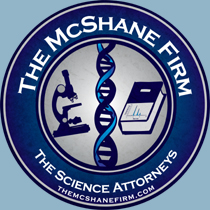Today is one of the most awesome days to celebrate in the world: It’s world Metrology Day! According to their website: http://www.metrologyinfo.org/worldmetrologyday/ World Metrology Day celebrates the signature by representatives of seventeen nations of The Metre Convention on 20 May 1875. The Convention set the framework for global collaboration in the science of measurement and […]

Why do instruments need to be calibrated?
Calibration (and bias) schema is a procedure that imperfectly transforms a response into a useful measure. Some crime laboratories have no method or manner as to how, why or when they should calibrate their instruments. Other laboratories have truly arbitrary intervals that they calibrate their instruments, but then they declare that this arbitrary interval is […]

A rose by any other name??? More on Metrology and its nomenclature
A rose by any other name would smell as sweet… is a quotation by William Shakespeare from his play Romeo and Juliet meant to say that the names of things do not matter, only what things are. In the play Romeo and Juliet, the line is said by Juliet in reference to Romeo’s house, Montague […]

The simple case for reporting of Uncertainty Measurement in measures in the Courtroom
This post is inspired by a combination of two events. First a comment by opposing counsel, and second several comments by several “old school” forensic science practitioners at this year’s American Academy of Forensic Science (AAFS) annual meeting that I attended. In a contested hearing opposing counsel argued that there was “no such thing as […]

Conclusion to the twelve part ISO 17025 introduction
In a series of posts, I am going to introduce the reader to the existence of ISO 17025 and its importance. I am going to introduce it in bite-sized bits for easy digestion. Just like all matters of learning, knowledge is incremental over time and builds upon previous exposure. So far we have answered the […]

How ASCLD/LAB International Conflicts with ISO 17025 and Honest Uncertainty Measurement Reporting
In a series of posts, I am going to introduce the reader to the existence of ISO 17025 and its importance. I am going to introduce it in bite-sized bits for easy digestion. Just like all matters of learning, knowledge is incremental over time and builds upon previous exposure. So far we have answered the […]

What Fletch can teach us about method validation
Ok. Anyone who knows me, has read this blog for a while or has seen me speak knows I love to use movies as transferable concepts to try to explain supposedly complicated scientific concepts. What can the 1985 classic movie “Fletch” teach us about method validation? Just like when “Gordo” said in the above […]

The Power of an assay-Bayes style
If you haven’t noticed a theme in these blog posts, it is really quite simple: Exposing limitations of assays. Showing the interpretive parts of forensic science I also admit that I love metrology as it should be applied to forensic science. As I have written before: I have blogged before on metrology and Uncertainty Measurement […]

Metrology in Quantitative Measure: Is it Specific or Selective or Neither…
As I have blogged before every assay has its limitations. There is no such thing as a perfect test. I have blogged before on metrology and Uncertainty Measurement (UM). Even the mighty International Standard, ISO 17025, in Section 5.4.6 only applies the concept of UM to the quantitative measure and to the quantitative measure alone. […]

Mass Spectrometry is only computer assisted pattern recognition
In our prior post, CRMs: Reference materials and standards, we saw how the library is important in analytical chemistry. It enables the analyst to compare the unknown to a known to arrive at an opinion that is often expressed as a conclusion. We saw that there are many different commercial sources for these libraries. In […]

CRMs: Reference materials and standards
Before we had blogged on the importance of metrology and uncertainty reporting as well as advancing (or rather inching) towards ISO 17025. Part of the integrity of any sort of testing of unknowns has to do with the veracity of the sources of knowns against which the unknowns are compared. For if we do not […]


